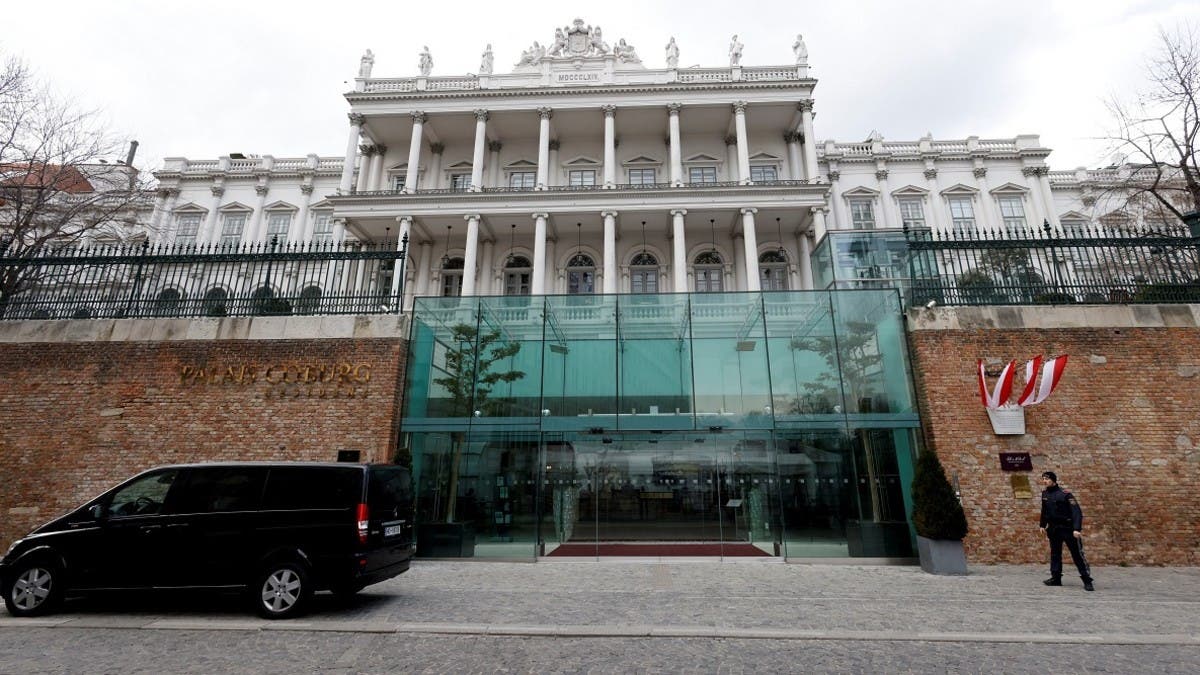Western officials have largely lost hope the Iran nuclear deal can be resurrected, sources familiar with the matter said, forcing them to weigh how to limit Iran’s atomic program even as Russia’s invasion of Ukraine has divided the big powers.
While they have not completely given up on the pact, under which Iran restrained its nuclear program in return for relief from economic sanctions, there is a growing belief it may be beyond salvation.
For the latest headlines, follow our Google News channel online or via the app.
“They are not yanking the IV out of the patient’s arm … but I sense little expectation that there is a positive way forward,” said one source, who like others quoted spoke on condition of anonymity because of the issue’s sensitivity.
Four Western diplomats echoed the sentiment that the deal – which Iran struck with Britain, China, France, Germany, Russia and the United States in 2015 but which then-US President Donald Trump abandoned in 2018 – is withering away.
The pact appeared on the brink of revival in early March when the European Union, which coordinates the talks, invited ministers to Vienna to seal the deal. But talks were thrown into disarray over last-minute Russian demands and whether Washington might remove the Islamic Revolutionary Guard Corps (IRGC) from its Foreign Terrorist Organization (FTO) list.
The IRGC controls elite armed and intelligence forces that Washington accuses of a global terrorist campaign.
Tehran’s demand to remove it from the list is opposed by many US lawmakers, who see it as a terrorist entity despite Iranian denials.
The Russian demands appear to have been finessed but the IRGC designation has not, with the impending Nov. 8 US mid-term elections making it hard for US President Joe Biden to buck domestic opposition to remove it.
Nobody wants to say ‘enough is enough’
Biden’s aides have made clear they have no plans to drop the IRGC from the list but have not ruled it out, saying if Tehran wants Washington to take a such step beyond strict revival of the deal, named the Joint Comprehensive Plan of Action (JCPOA) then Iran must address US concerns outside the deal.
“If they’re not prepared to drop extraneous demands, continue to insist on lifting the FTO, and refuse to address our concerns that go beyond the JCPOA then, yes, we’re going to reach an impasse that is probably not going to be surmountable,” said a senior US official.
“Is it dead? We don’t know yet and frankly we don’t think Iran knows either,” the official said.
So far, Iran seems unwilling to budge on the FTO removal.
“That is our redline and we will not cave on that,” said an Iranian security official.
Neither side wants to admit nearly a year of indirect talks may have failed, several sources said, with Washington hoping Iran might drop its IRGC demand and Iran convinced it can revive the deal whenever it wants.
As a result, events may drift, with the world focused on the Russian invasion of Ukraine and the resulting oil price spike allowing Iran to earn more from its illicit oil exports that evade US sanctions.
“I don’t think anybody wants to say enough is enough,” said a Western diplomat. “Does this go on indefinitely with neither side conceding that it’s over? … Probably.”
This could allow Iran to keep expanding its nuclear program, which it accelerated after Trump abandoned the deal. Washington believes Iran is within weeks of obtaining fissile material for ne nuclear weapon if it chose.
Iran has long rejected seeking nuclear weapons.
No real ‘Plan B’
Despite talk of a US “Plan B” to address Iran’s nuclear program if the deal cannot be revived, there are few good options.
Short of US or Israeli military action to destroy Iranian nuclear sites, the main lever big powers have is to cut Iran’s oil exports.
While Washington won the tacit support of Moscow and Beijing to curb Iranian exports via US sanctions in the years before the 2015 deal, there is no such consensus among the big powers.
Russia’s invasion of Ukraine despite US and European warnings show Moscow’s assent cannot be taken for granted.
China is the chief buyer of illicit Iranian oil and the sources said getting it to cut back will be tough when oil supplies are tight and Beijing gets discounted pricing from Tehran.
Asked previously about its purchase of Iranian oil in violation of US sanctions, China’s foreign ministry has declined to go into details but has reiterated Beijing’s opposition to US extraterritorial sanctions and urged the United States to remove its unilateral sanctions.
Iranian oil exports rose in the first quarter to an average of 870,000 barrels per day, according to Kpler, which tracks oil flows, up from 668,000 bpd in the fourth quarter.
The United States would, in effect, have to manage one effort to cut Russia’s oil exports and another to slash Iran’s.
“Can you galvanize two sanctions coalitions at once? That’s tricky,” said another source, saying Iran is now selling about half the volume of oil that it could sell if US sanctions were removed but, because of the price rise, pocketing the same revenue.
“(Why should Tehran) make a painful concession when they’re basically already getting that oil benefit?” he said.
Read more: Top Democrat warns Biden administration against lifting IRGC terror designation

 World3 years ago
World3 years ago
 World3 years ago
World3 years ago
 Business12 months ago
Business12 months ago
 Entertainment7 years ago
Entertainment7 years ago
 World7 years ago
World7 years ago
 Entertainment7 years ago
Entertainment7 years ago






